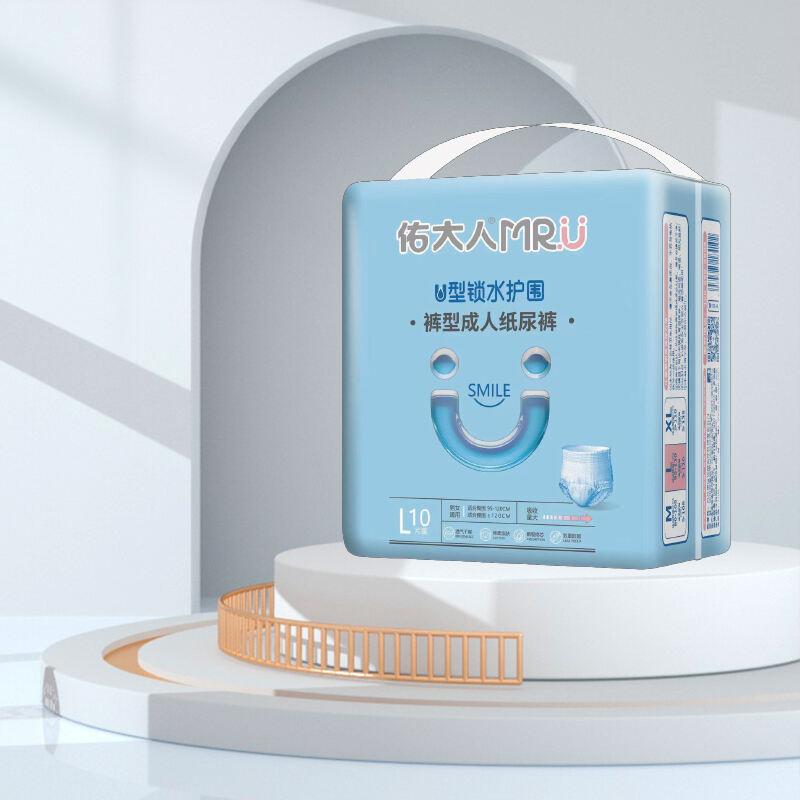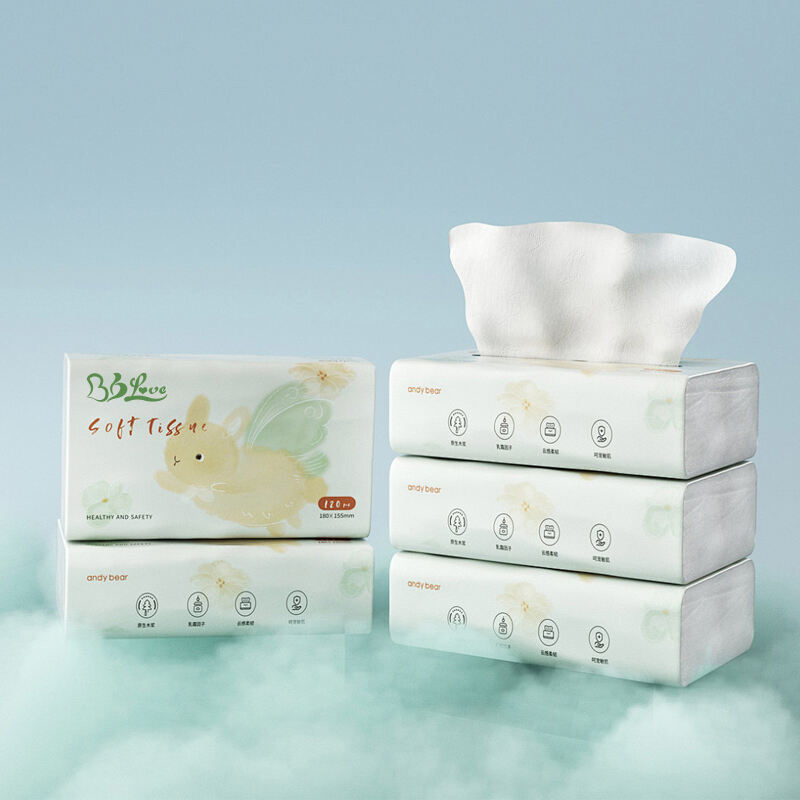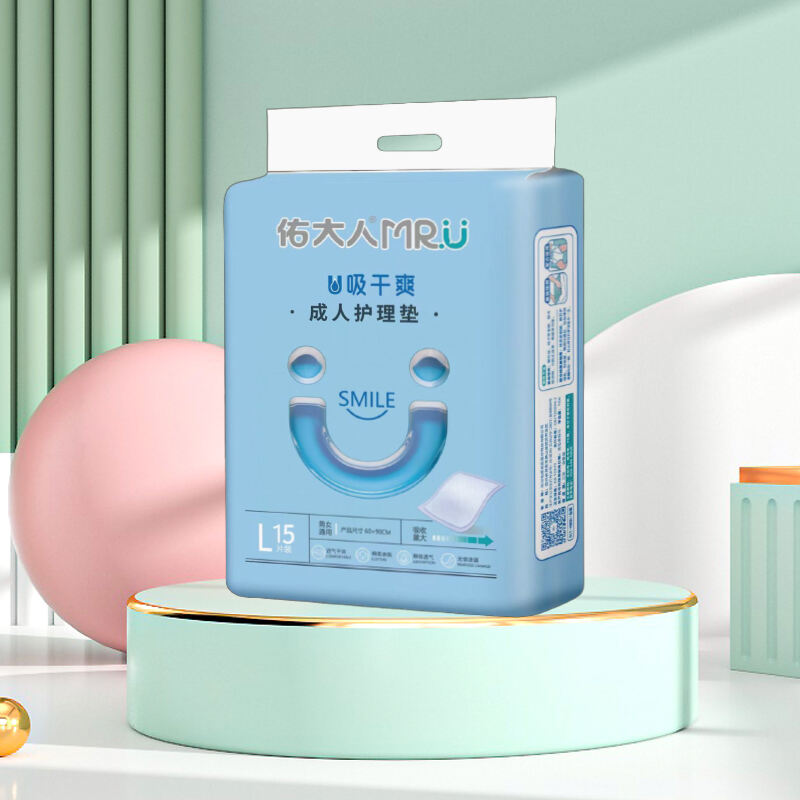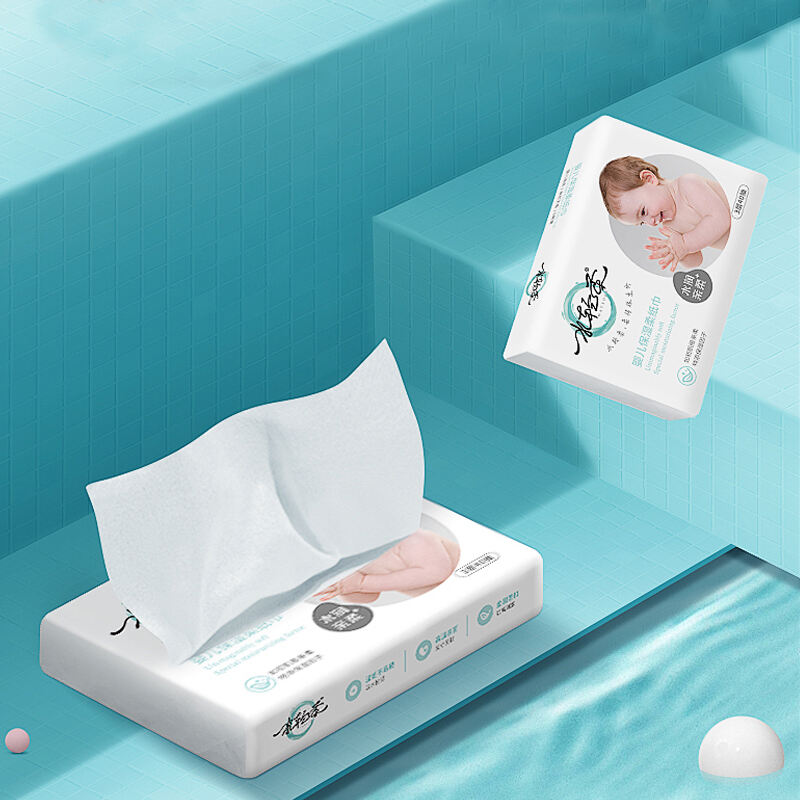Odaklanılan Sağlık: Antibakteriyel ve Duyarlı Deri İçin Hijyen Ürünlerinin Yükselişi
Duyarlı Deri için Antibakteriyel Hijyen Ürünlerini Anlama
Antibakteriyel hijyen ürünleri, ciltteki bakteri büyümelerini önlemek için özel olarak formulasyonlanmıştır; bu da çeşitli cilt enfeksiyonlarına ve tahrikeye neden olabilir. Bu ürünler, özellikle tahrikeye ve enfeksiyona daha fazla yatkın olan duyarlı derili bireyler için temizlik ve hijyenini korumada çok önemlidir. Antibakteriyel hijyen ürünlerinin ana amacı, zararlı bakterileri yok etmekken cildin sağlam ve sağlıklı kalmasını sağlayarak enfeksiyon riskini minimize etmektir.
Birden fazla antibakteriyel hijyen ürünü duyarlı cilt için özel olarak tasarlanmıştır, örneğin mendiller, kremler ve sabunlar. Bu ürünler sıklıkla sert kimyasalların kullanılmasını避reçerek yumuşak bir formülle hazırlanır. Antibakteriyel mendiller seyahatte temizlik için pratik bir seçenektir, sabunlar ve kremler ise daha derin bir temizlik ve nemlendirme rutini sunar. Her ürün türü farklı bir amaca hizmet eder ve bireysel cilt bakımı gereksinimlerine uyum sağlamak için esneklik ve seçeneği sağlar.
Duyarlı cilt, belirli bileşenlere tepki gösterme eğilimi olduğundan özel dikkat gerektirir. Bu nedenle, tahriye olasılığını azaltan daha yumuşak bileşenlere sahip ürünler tercih edilmelidir. Ciltleri yatıştırmak için aloevera veya kamille gibi bileşenler içerebilirken, parfümler veya alkoller gibi yaygın tahrik edicilerden uzak durulur. Antibakteriyel hijyen ürünlerinin duyarlı cilt için uygun olması, cilt sağlığını tehlikeye atmadan etkili bir şekilde bakterilere karşı koruma sağlamaları anlamına gelir.
Antibakteriyel Hijyen Ürünlerinin Ana Faydaları
Antibakteriyel hijyen ürünleri, derideki zararlı bakterileri azaltarak enfeksiyonları önlemekte önemli bir rol oynar. Çalışmalar, zararlı bakterilerin hızlıca çoğalabilecekleri ve sağlık sorunlarına neden olabilecekleri için daha düşük bir bakteri yükü korumanın enfeksiyon riskini azaltmada anahtar bir faktör olduğunu göstermiştir. Bu ürünleri kullanarak, bireyler deride ve çevresel ortamda sıklıkla bulunan yaygın patojenlerden kendilerini koruyabilirler.
Antibakteriyel hijyen ürünlerinin önemli başka bir faydası, akne ve ekzema gibi deri koşullarını yönetmede oynadığı roludur. Dermatolojik araştırmalar, bu durumların bakteriler tarafından ağırlaştırabileceğini göstermektedir. Bireyler antibakteriyel ürünlerı deri bakım rutinlerine entegre ederek semptomlarda azalma yaşayabilirler. Bu, özellikle akne eğilimli ciltte olanlar için yararlıdır çünkü bakteri büyümeyini kontrol etmek zamanla daha temiz bir cilt sağlayabilir.
Sağlıklı bir mikrobiyom korumak, antibakteriyel ürünlerin akıllıca kullanımıyla elde edilen temel faydalarından biridir. Zararlı patojenleri yok etmek ve yararlı bakterilere destek olmak arasında dengelenmesi gereken bir durum vardır. Belirli antibakteriyel formüller, deri mikrobiyomunun doğal yapısını korurken zararlı bakterilere hedeflenmek üzere tasarlanmıştır; bu da genel deri sağlığı için çok önemlidir. İnsan mikrobiyomunun önemi hakkındaki farkındalık arttıkça, bu dengeyi destekleyen ürünler uzun vadeli deri sağlığı ve dayanıklılığı konusundaki katkıları nedeniyle giderek daha fazla tanınmaktadır.
Doğru Antibakteriyel Hijyen Ürünlerini Nasıl Seçeriz
Antibakteriyel hijyen ürünlerini seçerken, hem etkili hem de duyarlı cilt için nazik olan bileşenlere odaklanmak önemlidir. Aramalı olduğunuz anahtar bileşenler arasında kayıtdutu yağı ve kamille gibi doğal antibakteriyel ajantlar bulunur. Bu bileşenler, bakterileri etkili bir şekilde mücadele ederken, aynı zamanda duyarlı ciltle ilişkili olan tahriyi hafifletebilen sakinleştirici özelliklerle de bilinirler. Örneğin, kayıtdutu yağı geniş spektrumlu antibakteriyel ve anti-ente flamatuar özellikleriyle dikkat çekmektedir, bu da onu günlük hijyen gereksinimleri için sağlam bir seçenektir.
Cilt sağlığını korumak için hangi kimyasallardan kaçınılması gerektiğini bilmek de aynı derecede önemlidir. Parabenler, sülfatlar ve sentetik parfümler gibi zararlı maddeler özellikle duyarlı ciltli kişiler için olumsuz etkiler doğurabilir. Bu kimyasallar, ciltin doğal yağlarını çeker, kurumluk veya tahriyeye neden olabilir ve ekzama veya kist gibi durumları ağırlaştırabilir. Etiketleri dikkatlice okuyarak bu zararlı katkılardan arındırılmış ürünler tercih edilerek tüketiciler hem cilt sağlığılarını geliştirebilir hem de hijyenini etkili bir şekilde koruyabilirler.
Dikkate Alınması Gereken Ürünler: Duyarlı Cilt için Antibakteriyel Hijyen
Duyarlı cilt için antibakteriyel hijyen ürünleri seçerken, bu gerekliliklere özel olarak tasarlanmış ürünlerden yararlanmak önem taşımaktadır. Aşağıda dikkate alınabilecek birkaç seçenek bulunmaktadır:
- Pantolon Tipi Yetişkinler için bezler : Bu bebeğe özel bezler sadece kolaylık için tasarlanmamıştır, aynı zamanda antibakteriyel gereksinimlere sahip hassas cilt için özellikler sunarlar. Uygun giyim imkanı sağlarlar ve ciltteki kuruluk ve korunma sağlamak için deri tahrişini önlemeye çalışılmıştır. Kullanılan malzeme genellikle nefes almaya açık ve deriye zarar vermez, bakteri büyümesi riskini azaltır.
- Tuvalet kağıdı : Higiyenini güvence altına almak için antibakteriyel özelliklere sahip tuvalet kağıdı seçin, cilt konforunu göz ardı etmeden. Bu ürünler hassas cilt için yumuşak olacak şekilde formulasyonu yapılmış, tahriş nedeni olan kimyasalları kullanılmadan etkili bir şekilde bakteri sayısını azaltır.
- Yetişkin Emzirme Pedleri : Bu ürünler, emekleyen anne için kuruluk sağlama ve antibakteriyel koruma amacıyla sıklıkla kullanılır. Hassas ciltlere uygun soft malzemelerle tasarlanarak, rahatsızlık yolaması olası bakteri büyümelerini etkili bir şekilde önler.
- Bebek El ve Ağız Mendilleri : Bu silgeler, bebek için güvenli antibakteriyel koruma sağlarken aynı zamanda hassas cildi dikkate alan formülasyonlu üründür. Sert kimyasallardan genellikle arındırılmıştır ve her temizlikte hafif bir temizlik deneyimi sunmak üzere özel olarak tasarlanmıştır.
- Bebek Nemlendirici Yumuşak Mendil Kağıdı : Hassas cilt için ideal olan bu kağıt, aynı zamanda antibakteriyel özelliklere sahip olan nemlendirici unsurlarla zenginleştirilmiştir. Ciltle yumuşak bir şekilde çalışırken hidrasyonu korumaya yardımcı olur, her gün kullanılması için mükem idealdir.
Bu ürünleri kullanarak, hassas cildin rahatlığını tehlikeye atmadan hijyenini sağlayabilirsiniz.
Antibakteriyel Hijyen Ürünlerini Güvenli Kullanma İpuçları
Antibakteriyel hijyen ürünlerinin etkinliğini maksimize etmek ve hassas ciltleri korumak için, kullanım talimatlarını tam olarak takip etmek önemlidir. Üreticiler tarafından sağlanan talimatlar, tüm ürünlerin tam potansiyelle performans göstermesini sağlamak ve cilt tahrişi riskini minimize etmek amacıyla tasarlanmıştır. Yetişkin bezi, havlu veya kağıt kullanırsanız dahi, belirtilen kurallara uymak, gereksiz rahatsızlıkları önlemeye ve antibakteriyel koruyuculuğu maksimize etmeye yardımcı olur.
Antibakteriyel ürünleri dengeli kullanmak, ciltin doğal dengesini korumak için önemlidir. Bu ürünlerin fazla kullanılması, ciltin doğal barierini ve mikrobiyomunu bozabilir, kuruluk veya tahriye gibi sorunlara neden olabilir. Uzmanlar, antibakteriyel ürünleri sadece gereken zamanlarda kullanmayı öneriyor, böylece ciltin doğal savunma mekanizmalarını ve sağlığını koruyabiliyor. Cildinizin bu ürünler karşıtı tepkisini düzenli olarak değerlendirmek, kullanım sıklığını belirlemekte yardımcı olabilir ve hem güvenliği hem de rahatlığı sağlayabilir.
Genel Temizlik Uygulamalarının Önemi
Genel hijyenini korumak, sağlığı ve iyi oluşunu desteklemek için temel bir unsurdur ve patojenlere karşı ilk savunma hattıdır. Düzenli el yıkama ve antibakteriyel ürünlerin kullanımı gibi uygun hijyen uygulamalarını entegre ederek bireyler enfeksiyon riskini etkili bir şekilde minimize edebilir. Antibakteriyel ajanlar, bakteri büyümeyi engelleyen bileşenlerdir ve sabunun tamamen ele alamayabileceği zararlı bakterileri ortadan kaldırmak için günlük uygulamaların anahtar rolünü oynar.
Cilt sağlığını tehlikeye atmadan günlük rutininize antibakteriyel ürünler kolayca entegre etmek için dengeli bir yaklaşıma sahip olmak önemlidir. Aşağıda göz önünde bulundurulabilecek etkili stratejiler bulunmaktadır:
- Antibakteriyel Ürünleri Az Kullanın : Aşırı kullanım cildinizin doğal nemini ve faydalı bakterilerini bozabilir.
- Ürün Talimatlarını Okuyun ve Takip Edin : Maksimum etkinlik için doğru miktarı ve uygulama yöntemini kullanıyor olduğunuzdan emin olun.
- Cilt Sağlığına Duyarlı Seçeneklere Öncelik Verin : Cilt engelini korurken antibakteriyel faydalar da sağlayacak şekilde formulasyonlanmış ürünleri seçin.
Bu uygulamaları entegre etmek, cilt sağlığına olumsuz etkisi olmaksızın hijyen seviyesini artırabilir, koruma ile iyi oluş arasında bir denge kurar.
Sonuç: Antibakteriyel Hijyenin Dengesi
Antibakteriyel ürünler bolca mevcut olan bir dönemde, bilinçli seçimler yapmak önem taşır. Her zaman ürün etiketlerini ve iddiaları inceleyin, böylece zararlı bakterilere etkili bir şekilde hedeflenmiş ancak çevrenize gerekli olmayan kimyasallar kazandırmayan ürünler seçtiğinizden emin olun. Bu karar verme süreci, genel güvenlik ve hijyenlere katkıda bulunurken, aynı zamanda ihtiyaçlarınız için en iyi ürünleri aldığınızdan da emin olmanızı sağlar.
Hassas cilt için antibakteriyel ürünler kullanılırken bakımı da aynı derecede önemlidir. Hem etkinlik hem de rahatlama sunan ürünleri tercih etmek gereklidir, özellikle cilt üzerinde nazik formulasyonlara sahip olanları. Bu denge, antibakteriyel ürünlerin hijyen avantajlarından faydalanmanıza izin verirken, cildinizi sağlıklı tutar ve tahripten korur. Bu adımları takip ederek, cildinizin sağlığına zarar vermeden hijyenik bir yaşam tarzı sürdürebilirsiniz.










